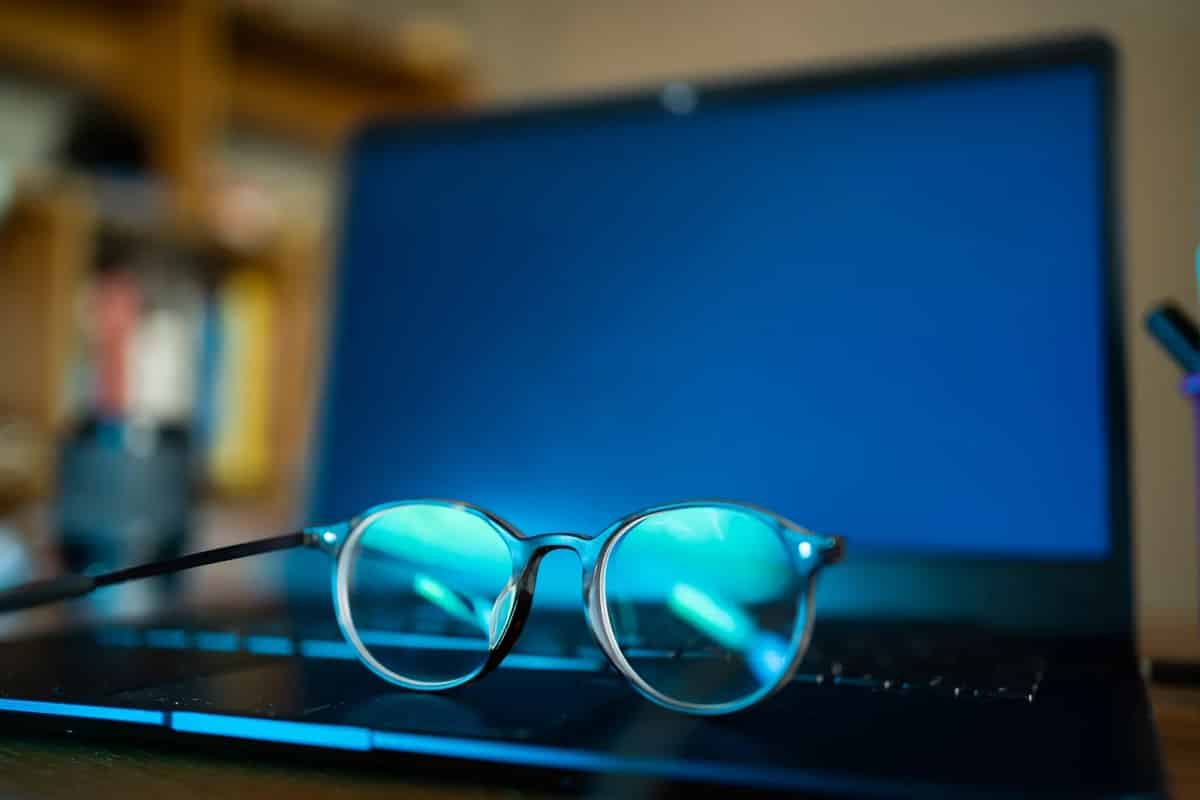To be with the computer, the tablet or simply watch TV. Electronic devices emit a type of light that damages the eyes. If in your work you must spend many hours in front of a screen, keep reading…
Light is not only as we perceive it with the naked eye, that is, white, Its beam is made up of red, orange, yellow, green and blue, in addition to all the shades that make up the rainbow that the refraction of the light itself forms.
Blue is, like ultraviolet, a type of light. In fact, the sky is blue, or we see it that way, because of blue light. Although the natural source of blue light is the sun, the electronic devices that we use more and more frequently also emit it. Computers, tablets, smartphones… almost all digital screens give off blue light, even if it is in small amounts.
Although UV or ultraviolet light is more powerful than blue light, the human eye is, according to optometrists, very good at blocking it. However, it is not so with blue light. The blue light wave is short, so it is easier for it to penetrate the eyes than, for example, red.
The Covid-19 pandemic has only increased the around 10 hours a day that the population spent in 2019 viewing screens, according to a study. It is evident that modern life today has a wide range of resources for speeding up communication, research and entertainment provided by technology, which our great-grandparents did not dream of. Just as a series of new addictions have emerged around its misuse, appearing in recent years what is known as technology addiction, through the variety of electronic devices and services resulting from it.
The relationship between the technological apparatus and the subject develops following the gradual process of this Illness: tolerance at the beginning, abuse and loss of control until life becomes unmanageable. Process similar to that of any type of addiction, whether towards an object, person, event or circumstance with the presence of the withdrawal syndrome that characterizes this underlying disease.
For this reason, lenses designed specifically to reduce the amount of blue light that reaches the eye have emerged. We’re talking about blue light glasses.
The function of these lenses is to filter this type of rays. Optometrists do not agree on the potential effects that exposure to blue light derived from screens can have on the eyes, specifically on the retina, in the long term. But there has long been speculation that it could have potential effects on eye health such as eye or macular fatigue, and even influence sleep patterns and quality.
However, without some exposure to blue light, one does not have good health either, because in its correct measure it increases attention, reaction time and even improves mood. In theory, blue light filter lenses help prevent eye fatigue or so-called computer vision syndrome that includes dry eyes and headaches.

